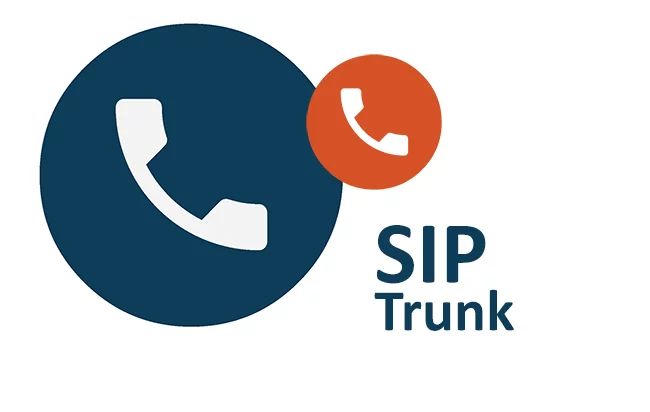
Reviews of Top Online Radio Broadcasting Software Solutions
Harris Irfan
- September 18, 2025
In today’s digital landscape, the demand for online radio broadcasting has surged, leading to the emergence of various software solutions designed to cater to broadcasters’ needs. Whether you’re an indie station, a commercial network, or a podcast producer, finding the right software is crucial for success. This article reviews some of the best online radio broadcasting software solutions available, focusing on their features, benefits, and how they stack up against each other. Among them, RadioCloud.app stands out as a top contender in the market.
The Importance of Choosing the Right Broadcasting Software
Choosing the right broadcasting software is essential for several reasons:
- User Experience: A user-friendly interface can significantly reduce the learning curve, allowing broadcasters to focus on content rather than technology.
- Reliability: The software should provide 24/7 streaming capabilities to ensure that your audience can tune in at any time without interruptions.
- Engagement Tools: Effective engagement features like live chats, polls, and voice messages can help build a community around your station.
- Monetization Options: The best software should offer various monetization strategies, including ads, subscriptions, and merchandise sales.
- Analytics: Comprehensive analytics help broadcasters understand their audience better, refine their content, and improve overall performance.
Top Online Radio Broadcasting Software Solutions
1. RadioCloud.app
Overview: RadioCloud.app is an all-in-one platform designed for the next generation of radio broadcasting. It provides users with a robust suite of tools for streaming, monetization, and audience engagement.
Key Features:
- 24/7 Cloud-Based Streaming: Ensures your station is always live.
- Interactive Listener Tools: Features like live chat and polls enhance audience engagement.
- Monetization Suite: Offers multiple revenue streams through subscriptions, tips, and merchandise.
- Smart AI Assistant: Provides insights and analytics without requiring complex dashboards.
- Integration Capabilities: Easily integrates with platforms like TuneIn and Alexa.
Pros:
- User-friendly interface.
- Comprehensive analytics for audience tracking.
- 24/7 human support available.
Cons:
- Pricing may be higher for smaller stations.
Conclusion: For broadcasters looking for the best online radio broadcasting software, RadioCloud.app offers a complete solution with powerful features for growth and engagement. Visit RadioCloud.app to learn more.
2. Spreaker
Overview: Spreaker is a popular choice for podcasters and radio broadcasters alike. It offers a versatile platform for live streaming and on-demand content.
Key Features:
- Live Broadcasting: Allows users to stream live shows easily.
- Podcast Hosting: Comes with built-in podcast hosting capabilities.
- Analytics Dashboard: Provides detailed insights into audience behavior.
- Social Media Integration: Facilitates sharing on various social media platforms.
Pros:
- Intuitive interface suitable for beginners.
- Flexible pricing plans based on usage.
- Strong community support.
Cons:
- Limited customization options for branding.
- Some users report technical glitches.
Conclusion: Spreaker is an excellent choice for those who want a blend of podcast and radio broadcasting features. However, those looking for extensive customization may find it lacking.
3. Mixlr
Overview: Mixlr is a straightforward live audio streaming software that focuses primarily on simplicity and ease of use.
Key Features:
- Live Streaming: Stream live audio with minimal setup.
- Chat Feature: Engage with listeners through a built-in chat function.
- Mobile App: Allows broadcasting from mobile devices.
Pros:
- Easy to use, making it ideal for beginners.
- Good for quick, spontaneous broadcasts.
Cons:
- Limited advanced features compared to other platforms.
- No built-in monetization options.
Conclusion: Mixlr is perfect for users looking for a simple solution to go live quickly. However, it may not be suitable for those needing extensive features or monetization capabilities.
4. Radio.co
Overview: Radio.co is a powerful online radio broadcasting platform designed for both amateurs and professionals. It offers comprehensive features for managing a radio station.
Key Features:
- Cloud-Based Streaming: Reliable and scalable streaming solutions.
- Automation: Schedule shows and manage playlists automatically.
- Listener Engagement: Offers tools for audience interaction.
Pros:
- Highly customizable with branding options.
- Excellent analytics and reporting features.
Cons:
- Higher learning curve for new users.
- Pricing can be steep for small stations.
Conclusion: Radio.co is ideal for professional broadcasters looking for a robust and customizable platform. It offers extensive features that can help grow your station significantly.
5. Airtime Pro
Overview: Airtime Pro is designed for community radio stations and offers a range of features for live and automated broadcasting.
Key Features:
- Scheduling: Advanced scheduling capabilities for automated broadcasts.
- Cloud Storage: Store and manage your audio files in the cloud.
- Multi-User Access: Supports multiple users, allowing team collaboration.
Pros:
- Flexible and scalable for different needs.
- Good for community-focused stations.
Cons:
- The interface may feel outdated to some users.
- Some users report issues with customer support.
Conclusion: Airtime Pro is a great option for community radio stations that need flexibility and collaboration features. While there may be interface limitations, its capabilities make it a solid choice.
Comparing the Software Solutions
When comparing these software solutions, consider the following factors:
- Ease of Use: For beginners, platforms like Spreaker and Mixlr may be more appealing due to their intuitive interfaces.
- Features: If you need comprehensive features, RadioCloud.app and Radio.co offer robust options for monetization, analytics, and audience engagement.
- Cost: Budget constraints may lead smaller stations to choose solutions like Mixlr or Airtime Pro, which offer more affordable plans.
Conclusion
Selecting the best online radio broadcasting software depends on your specific needs as a broadcaster. Each platform reviewed offers unique features and capabilities that cater to different audiences and use cases. However, RadioCloud.app stands out for its all-in-one solution that combines streaming, monetization, and engagement tools effectively.
For broadcasters looking for a comprehensive platform that can grow with their needs, RadioCloud.app is an excellent choice. Visit RadioCloud.app to explore its features and book a demo today.




